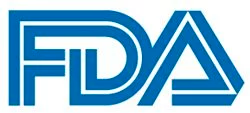Article
FDA Grants Orphan Drug Designation to LNS8801 for Metastatic Cutaneous Melanoma
Author(s):
The FDA has granted an orphan drug designation to LNS8801 for the treatment of patients with metastatic cutaneous melanoma.

The FDA has granted an orphan drug designation to LNS8801 for the treatment of patients with metastatic cutaneous melanoma, according to an announcement from drug developer Linnaeus Therapeutics.1
“We are extremely pleased to have received orphan drug designation for cutaneous melanoma from the FDA. This is an important milestone that has emerged from the very promising data we have seen in biomarker-defined patients with metastatic cutaneous melanoma in our dose-expansion cohorts,” Linnaeus chief executive officer Patrick Mooney, MD, said in a press release. “We look forward to further opening a randomized controlled study in patients with treatment-refractory cutaneous melanoma to explore the promising results we have already seen with LNS8801 alone and also in combination with pembrolizumab.”
LNS8801 is an oral, highly specific, and potent agonist dependent on GPER expression. GPER activation by LNS8801 leads to rapid and durable depletion of c-Myc protein levels. In preclinical models, LNS8801 demonstrated significant antitumor activity across several tumor types, stimulating tumor regression immune memory.
In June 2020, the FDA granted a fast track designation to the agent for the treatment of patients with metastatic or unresectable melanoma who have progressed on anti–PD-1/PD-L1 therapy.2
The agent is currently under investigation as a single agent and in combination with pembrolizumab (Keytruda) in patients with advanced cancer in a first-in-human, open-label, multicenter, phase 1/2 trial (NCT04130516). The study, which follows a 3+3 ascending dose-escalation design, will enroll up to 200 patients to determine the maximum tolerated dose, recommended phase 2 dose, safety, tolerability, pharmacokinetic, and antitumor effects of LNS8801.3
To be eligible for enrollment, patients must be at least 18 years of age and have a histopathologically confirmed locally advanced or metastatic solid tumor, no available standard of care, measurable disease per RECIST v1.1 criteria, and ECOG performance status of 0 or 1, and a life expectancy greater than 3 months.
The phase 1b monotherapy expansion cohort will enroll patients with melanomas, except uveal melanoma, who have previously received anti–PD-1/PD-L1 therapy. An additional 4 cohorts of patients will receive LNS8801 monotherapy: those with pancreatic, gastric, non–small cell lung cancer (NSCLC) or colorectal cancer (CRC); PD-1/PD-L1–pretreated cutaneous melanoma; any solid tumor malignancy, except cutaneous melanoma with prior PD-1/PD-L1 treatment; and metastatic uveal melanoma that has received no more than 2 prior lines of systemic therapy.
The phase 1b combination expansion cohort will enroll patients with locally advanced or metastatic solid tumors with disease progression on an anti–PD-1/PD-L1 therapy. An additional 4 cohorts will receive LNS8801 plus pembrolizumab: those with pancreatic, gastric, NSCLC, or CRC; metastatic, EGFR and ALK wild-type NSCLC with a PD-L1 tumor proportion score between 1% and 49% that is PD-1/PD-L1 naïve; metastatic uveal melanoma that has received no more than 2 prior lines of systemic therapy; and cutaneous melanoma.
Preliminary safety data have shown that the agent is well tolerated as monotherapy.
References
- Linnaeus Therapeutics Granted Orphan Drug Designation for LNS8801 for the Treatment of Patients with Metastatic Cutaneous Melanoma. News release. Linnaeus Therapeutics. January 19, 2023. Accessed January 19, 2023. https://prn.to/3IVUBXY
- Linnaeus Therapeutics granted U.S. FDA fast track designation for LNS8801 for the treatment of patients with metastatic or unresectable melanoma who have progressed on anti-PD-1/L1 therapy. News release. Linnaeus Therapeutics. June 18, 2020. Accessed January 19, 2023. https://prn.to/3Xo08ef
- Study assessing the MTD, safety, tolerability, PK and anti-tumor effects of LNS8801 alone and with pembrolizumab. ClinicalTrials.gov. Updated November 23, 2022. Accessed January 19, 2023. https://clinicaltrials.gov/ct2/show/NCT04130516









